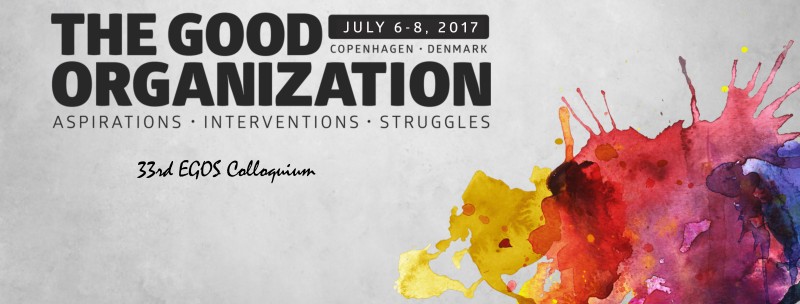Program
PDW 07:Writing Theory Papers for the Academy of Management Review (AMR) and Organization Studies
Wednesday, July 5, 2017, 09:00–13:00
Copenhagen Business School (CBS) – Kilen, Kilevej 14 A/B, Copenhagen-Frederiksberg
– Main room: K s43 (ground floor)
– Break-out rooms: Ks 48 (ground floor), K 150 (1st floor), K 375 (3rd floor)
Convenors:
Joep P. Cornelissen, Rotterdam School of Management, Erasmus University, The Netherlands; Associate Editor AMRFacilitators:
Jean Bartunek, Boston College, Associate Editor AMR
Kris Byron, Georgia State University, Associate Editor AMR
Don Lange, Arizona State University, Associate Editor AMR
Mike Pfarrer, University of Georgia, Associate Editor AMR
Belle Rose Ragins, University of Wisconsin-Milwaukee, Editor-in-Chief AMR
Marianna Fotaki, Warwick Business School, Senior Editor Organization Studies
Daniel Hjorth, Copenhagen Business School, Senior Editor Organization Studies
Jasper Hotho, Copenhagen Business School, Senior Editor Organization Studies
Renate Meyer, WU Vienna, Senior Editor Organization Studies
Mike Zundel, University of Liverpool, Senior Editor Organization Studies


